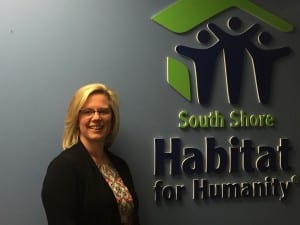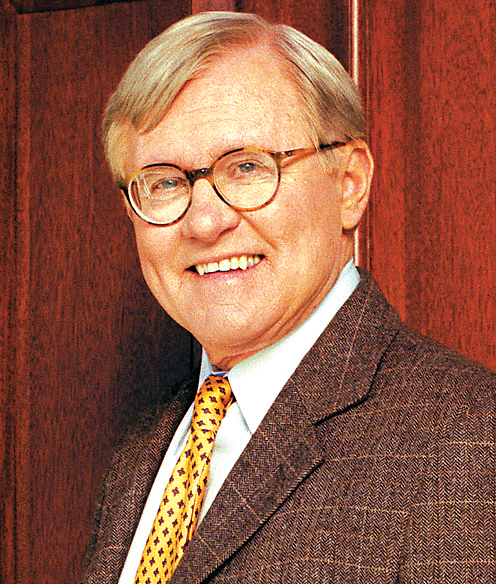Martine Taylor
Title: Executive Director, South Shore Habitat for Humanity
Age: 44
Experience: 30 years
Martine Taylor took a job as a receptionist after earning a degree in family studies; she thought she’d go back and get a master’s degree in social work, but never did. She’s spent most of her professional life in the nonprofit sector and when she’s not working, she’s often volunteering for housing-related causes. She enjoys spending time in Southern Maine and says she’s racked up a lot of miles driving around to see her vast network of friends and family. She’s worked since she was 10 years old and loves finding new things to make her smile – or even better, laugh.
Q: What’s the best advice you’ve ever gotten?
A: That’s a tough call, but I would say something George Downey, the founder of Harbor Mortgage who interviewed me for my first nonprofit executive director job told me: “People give to people, not to organizations.” It has stayed with me ever since.
Q: Have you always worked in the nonprofit sector?
A: I’ve had a few experiences in the for-profit world. I started my career as a receptionist out of college, not wanting to get a “real” job, much to the chagrin of my parents. I worked for Marvin Poor and Co., a real estate tax firm downtown. I just wanted a job, where I only had to answer the phone and say, “Hi, thanks for calling.”
Shortly after I started working there, the woman who had been handling all the low-income tax abatements ended up going out on maternity leave and the person who ran the department told me I was going to run it while she was gone. That was my entre into housing. After several years, I left and taught nursery school for a while. When I was 25, I applied for an executive director (ED) job at Christmas in April (which later rebranded as Rebuilding Together) and I worked for them for 10 years.
Q: Applying for a job as an ED at 25 years old is pretty bold. Did you have any experience with budgets or revenue project?
A: It was. I had run development programs for kids in high school. I had done a lot of volunteer work, but truthfully, I think what I’ve learned is that it’s not always about your experience, it’s about your ability to adapt and your desire to learn. They took a risk on me as a young ED.
They do home renovations for low-income seniors, enabling them to remain in their homes. I remember sitting and the interview committee basically asked me about my experience with fundraising and budgets. I told them what I knew how to do and what I didn’t and I told them I was willing to learn and at the end of the day, if they hired me, we’d both be successful together. I think that’s what got me the job.
The first day I sat down and said to myself, “If we’re going to do renovations, we’re going to need people and money.” The only way it was going to work is to involve corporations. So, I turned the computer on and started calling people. It taught me the importance of relationships in business. I learned that anything is surmountable if you have a plan and know what you’re doing. We grew the program from a signature event on a Saturday in April where we’d mobilize 1,000 people on 25 projects to a year-round program and increased staff.
After 10 years I felt it was time for a change and I did some consulting for Project Hope, which is a nonprofit that focuses on transitional housing and empowering women to move out of the shelter system. Then I went back into the for-profit sector for Richard White & Sons Construction, doing strategy and development, which kept me in the building and proposal space. I learned about RFPs. I worked there for three years. Then my current position opened up and to be honest I didn’t think I wanted it. I wondered if it was the time to get out of construction. It was just after the crash. I came here in 2010 and it’s been seven years.
Q:What is it that most people don’t understand about Habitat for Humanity?
A: We’re a mortgage program like any other. We are a bank and a lender. We don’t give houses away. We don’t house the poor. Our families have to work to qualify and pay their mortgages. We are a “friendly” 40B developer.
Our families have to provide sweat-equity on their house and the houses of others. They also have to be ambassadors for the program. In the old days we’d wait for towns or private parties to donate a property. Now, municipalities are calling us to say they have tracts of land and asking us to consider being their developer. We’re currently building a home in Duxbury that we’ll finish in June. We have a six-unit development that we’ll start clearing soon. We have a property in Hingham we can use to develop up to three units. We like that size, three to six units. We’re the only developer out there that can build a simple, decent, affordable home and sell it for about half of what it’s worth because we don’t pay for labor and we get so much of the materials donated. We get properties that aren’t desirable to a mid- to high-end builder. Our goal isn’t to become more profitable. Our goal is to increase workforce housing. It’s not low-income housing. We technically do anywhere from one to five units a year. Our goal is to have 12 done by 2020. We’ve done 58 in the last 30 years. We hope to do that same number in the next 10 to 15 years.
In the old days, you’d get a piece of property, you’d build a house by-right and it was great. Now we are doing comprehensive permits for single-family homes because local zoning has changed. I think that’s one of the biggest challenges now. No one wants 300 apartments on a 10,000-square foot lot, but they certainly would like to see a single-family home there. We can’t do things like we did them in the old days because the commonwealth has a shortage of 99,000 units of housing. This includes mansions, affordable housing, transit-oriented development. We can’t just say we don’t want affordable housing. Affordable doesn’t mean people don’t pay. They work, and having affordable housing is an economic driver. Companies understand they need to invest in housing or they won’t have workers. It’s not about the affordable piece, it’s about companies having access to a workforce that’s committed, recruited and sustained
Q: That can be a hard sell. What if we don’t build more new housing?
A: We’ll be Detroit. If families can’t afford to live here, they’re not going to take jobs here. Habitat mortgages are approximately $800 per month. Now you can live in the community and you’re investing back. We can’t continue this trend.
Taylor’s Five Favorite Things:
- Being by the ocean
- Dogs – they really are the world’s best companions
- Humor – belly laughing – we don’t do it enough
- Spicy foods, bold wine and dirty martinis
- Surrounding herself with loving and caring people
This article has been updated to correct the rebranded name of the nonprofit where Taylor took her first executive director job.







